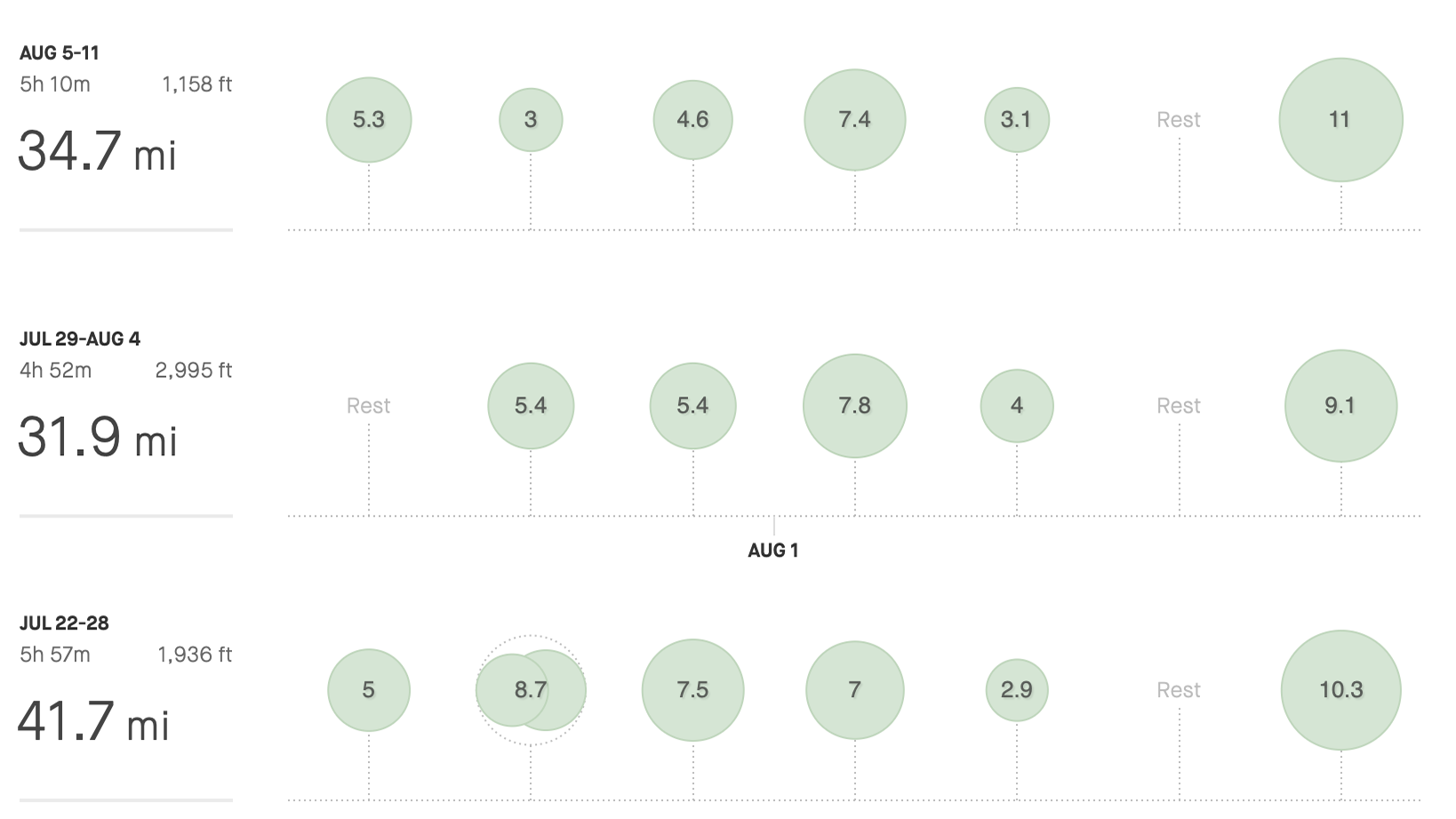Some runs are easier than others, but running in general isn’t easy. Hence the expression, “My sport is your sport’s punishment.” Logic tells us, therefore, that running frequently—say, six times a week—must be harder than running less frequently—say, twice a week. But in fact the opposite is true.
For no fewer than four specific reasons, running often is actually easier than running occasionally. So, if you’re interested in making your own running routine easier to sustain, you might want to consider running more often. Skeptical? Read on!
Reason #1: Habit Momentum
Research into the science of habit formation has highlighted the importance of what is known as automaticity. People have only so much willpower. If you want to keep up a habit such as running, the underlying behavior needs to become automatic—something you just do, regardless of how much or how little willpower you have on a given day. And nothing helps a habit become automatic like frequency of repetition.
In a 2017 study, psychologists Navin Kaushal and Ryan Rhodes of the University of Victoria looked at the relationship between exercise frequency and automaticity in a population of 111 new gym members. After 12 weeks of tracking, 63.8 percent of those who visited the gym four or more times per week were found to have succeeded in forming an exercise habit (as measured by automaticity), compared to only 22.6 percent of those who visited the gym three or fewer times per week.
The lesson: If you want to make your running habit easier to keep up, run often enough that it becomes automatic.

Reason #2: Healthy Dependency
Running frequently also promotes a healthy psychological dependency on running that makes it easier to do. When you run often enough (more or less daily), you generally feel better when you do run than when you don’t.
This was shown in a 1988 study by Connie Chan of the University of Massachusetts and Hildreth Grossman of Harvard University. The subjects were 60 men and women classified as “consistent runners.” Half of them agreed to stop running for two weeks while the other half continued to train as normal. During this two-week period, members of the group deprived of their running habit reported higher levels of depression, anxiety, confusion, and overall mood disturbance. You can bet they were a lot happier when the study ended and they got to run again!
The lesson: If you want to make your running habit easier to keep going, run often enough that you feel better when you do run than when you don’t.
Reason #3: Feeling Fit
The main reason running is experienced as hard or challenging is perceived effort, or your overall sense of how hard you’re working during exercise. The fitter you get, the lower your perceived effort is at any given pace. For beginners, almost any pace feels uncomfortable, but for runners who have been at it for a while and built up a decent level of fitness, cruising along at a low to moderate speed may feel as comfortable as walking.
One of the biggest contributors to running fitness is run frequency. Simply put, the more often you run (up to a point, of course), the fitter you will get and the easier running will feel. For example, a 2017 study by British researchers found a significant correlation between run frequency and lactate threshold speed, VO2max, and marathon times in a group of 97 recreational runners.
The lesson: If you want running at any given pace to feel easier, run often.

Reason #4: Greater Durability
As a high-impact activity, running produces aches and pains and, on occasion, an outright injury. Whereas intuition might tell you that the more often you run, the more aches, pains, and injuries you will experience, the truth is that runners who train more frequently tend to get hurt less often. That’s because running stimulates tissue adaptations in the bones, muscles, and joints that make them more durable.
A 2013 study by Danish researchers found that, among 662 runners training for a marathon, those who ran less than 30 km per week were injured more than twice as often as were those who ran 30 to 60 km per week, while those who ran more than 60 km were not injured any more often than were those who ran 30 to 60 km per week. And a 2014 study published in the Journal of Science and Medicine and Sport reported that, within a group of 517 recreational runners, those who ran the least were injured most often.
This doesn’t mean you should go straight from the couch to running more than 60 km per week, however. Research by Australian exercise physiologist Tim Gabbett has shown that athletes in a variety of sports are never more likely to get injured than when they abruptly increase their training load, whereas maintaining a consistently high load will actually decrease risk of injury, not, as many believe, lead to “overtraining.” So, it’s important to build up your run frequency and overall mileage gradually until you reach an appropriate maintenance level and then stay fairly consistent.

